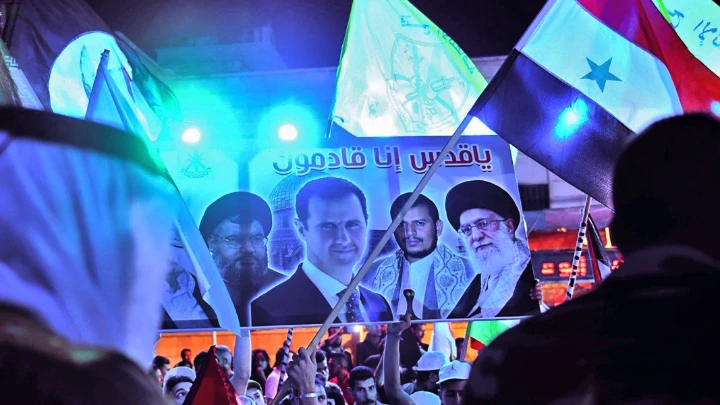But is this moment history-defining in the way that White House officials seem to hope it is? Without a political solution that accommodates the millions yearning for peace and justice in the Middle East including Palestinians, Lebanese, and Syrians, it’s likely not. Israel’s tactical victories and Iran’s losses will be ephemeral.
Regardless of how hard Israel pummels its adversaries in the Middle East, both Iran and Hezbollah have hundreds of miles of territory sweeping from the Mediterranean to Iran to recuperate in. Hezbollah and Iran also play the long game when others, like the United States, are too impatient. This tenacity has allowed them to entrench their control in Syria, Iraq, Yemen, and, of course, Lebanon. Though Iran and Hezbollah are beaten down now, they have proven to be resilient in the face of tactical losses by being able to maneuver in conflict-affected and fragile states, where others have given up.
Syria is a case in point. Hezbollah and Iran’s interventions in Syria since the start of the civil war have proven to be an advantage and disadvantage at certain moments. For example, recent reporting has suggested that their intervention in Syria has made them vulnerable to U.S. and Israeli intelligence gathering and targeting. However, this is not the first time Hezbollah and Iran have suffered due to their role in the war but stayed the course for longer-term strategic resilience.
In 2010, the Iranian-backed “axis of resistance”—with Hezbollah at the center—seemed both powerful and righteous. Hezbollah had the goodwill of the Arab world as a non-state armed group that forced the mighty Israel to withdraw its forces from Lebanon after an 18-year occupation. The war in Syria changed that image. From peaceful protests that demanded reform in 2011, Syria spiraled into a bloody conflict that became a playground for regional and international actors until the present day. Among those actors were Russia, Iran, and Iran’s proxy, Hezbollah.
By helping to prop up the Bashar al-Assad regime through brute force, Hezbollah and Iran showed that resisting injustice in the region was a secondary task. The principal goal was building power. Hezbollah drafted thousands of fighters to besiege and attack densely populated areas in Syria. In doing so, their image was tarnished. They were no longer confronting “the Zionist enemy,” their stated objective. Instead, they were killing fellow Muslims who were demanding freedom from an autocratic regime.




